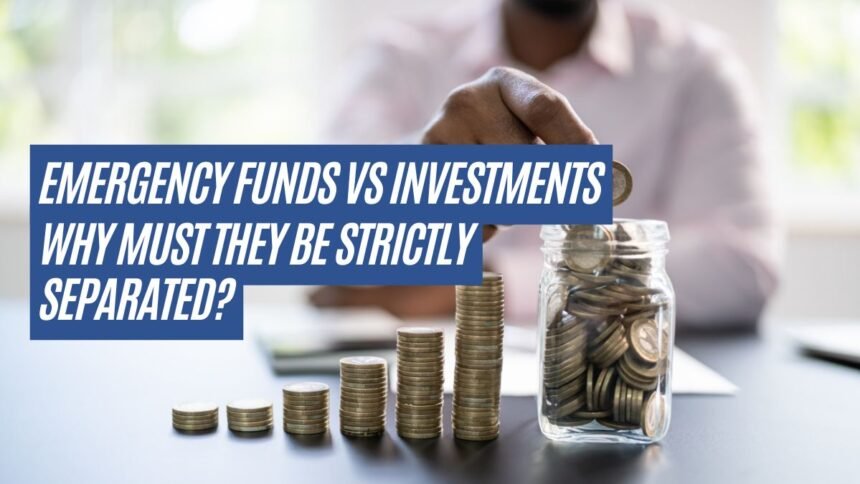Hey guys! It’s me again, the financial warrior who always gets frustrated when I see friends still confused about the difference between these two fundamental things, Emergency Funds and Investments. I swear, they’re like oil and water, they have to be separated!
I know, sometimes we get really excited about the profit from investments. Especially when we see friends showing off their fantastic returns. It makes me want to immediately “plow” all our money into investment instruments.
Hey, hold on! Before you go all-in on stocks, mutual funds, or gold, there’s one crucial item that’s often overlooked or even mixed up with investment funds. Yes, that’s right, the savior in times of crisis, the Emergency Fund (DD).
Why can’t these two items be combined? Aren’t they both saved money?
Nope, the philosophies are very different! Here are the complicated reasons why separating Emergency Funds and Investments is a must in sound financial planning.
1. Different Goals, Different Fates
This is the crux of it all. Let’s flashback briefly to their respective primary goals:
- Emergency Fund, its purpose is one and only one, to provide a safety net in case of unexpected events. For example? Job loss, sudden illness requiring medical expenses, or sudden car/house repairs. Its priorities, Availability (Liquidity) and Security (Safety).
- Investment, the goal is asset growth to achieve medium- to long-term financial goals, such as retirement funds, children’s education funds, or buying a house. The priority: Growth (Return).
The logic is this, If your money is mixed, if you suddenly become ill (need emergency funds), you must sell your investment assets (e.g., stocks). Like it or not, you’re forced to sell them immediately, regardless of whether the stock price is dropping or rising. It hurts, right? Not just physically, but it hurts your wallet too!
2. Different Characteristics of Storage Instruments
Emergency Funds and Investments must be placed in different “houses” because of their contrasting characteristics.
Emergency Funds Must Be Liquid and Secure
Emergency Funds must be liquidable within hours or days without the risk of a decrease in value. The best places? Conventional savings, time deposits, or money market mutual funds. In short, something that is risk-free and easy to withdraw.
Bold Investment Going All the Way (Risk)
Because the goal is long-term and the pursuit of high returns, investments will automatically go into instruments with higher risks (stocks, property, peer-to-peer lending). These instruments have the potential for large returns, but also the risk of significant losses and cannot be suddenly liquidated without loss.
Imagine if your DD is in stocks, and suddenly there’s an accident. You panic and sell the stock when it’s down $20%. Congratulations, you’ve not only lost funds for medical treatment, but also lost $20% of the capital that was supposed to be your retirement fund! Double loss!
3. Peace of Mind Is Expensive, Guys!
This is a soft skill of finance that’s often overlooked. By separating DD into safe areas and investments into growth areas, you’ll gain incredible peace of mind.
When the investment market is volatile (bearish), you won’t panic because you know, “Oh, relax. My food and emergency money are safe in a Money Market Mutual Fund. Let this stock go down, it’ll go back up. After all, this is money for the next 10 years.”
What if you mix them? Every time the market drops, you immediately worry, “Gosh, if this keeps going down, what will I use to pay my rent?” Stress levels are high!
Start from Zero, But Be Consistent!
So, my fellow financial fighters, I have only one message, Finish your Emergency Fund first, then gasp Invest!
What is the ideal Emergency Fund amount? Generally, 3-6 times monthly expenses (for singles), or 6-12 times monthly expenses (for those who are married/have dependents).
Make sure the DD account is fully funded and separate from your daily accounts. After that, allocate the rest of your money to investments. This way, you can sleep soundly, don’t panic easily during financial turmoil, and your investment growth can run optimally without any disruption.
Starting today, check your budget again. Have you strictly separated your Emergency Fund and Investments? Share your experiences in the comments!












